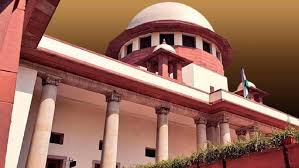(A) East Punjab Evacuee’s (Administration of Property) Act, 1947 – Administration of Evacuee Property Act, 1950 – Displaced Person (Compensation and Rehabilitation) Act, 1954, Section 5, 12, 22, 24(1), 25 – Evacuee property – Allotment of – Review jurisdiction – Section 25 of the 1954 Act provides for review of the orders passed under the Act, mentions that any person aggrieved by an order of Settlement Officer under Section 5, from which no appeal is allowed under Section 22, may, within thirty days from the date of the order, file a review petition – It further provides that a clerical or arithmetical error in any order passed by an officer or authority under the Act may be corrected by such officer or authority or the successor-in-office – Held that in the facts of the case, a review petition may not be maintainable as it was not a case of an error arising from any accidental slip or omission – In the earlier order dated 25.06.1979, the Chief Settlement Commissioner considered the case of the appellants threadbare, on application filed by the appellants – In fact, the appellants re-argued the matter on merits which was not the scope of jurisdiction as provided in Section 25 of the 1954 Act. (Para 25)
(B) Displaced Person (Compensation and Rehabilitation) Act, 1954, Section 5, 12, 22, 24(1), 25 – Displaced person – Allotment of evacuee property –Review jurisdiction – It is evident from the order dated 07.05.1980 passed in the review petition that the entire matter was considered afresh – Merely because the appellants were in possession of the entire area, which was forming part of ‘Spring Field’, was presumed to have been sold – Whereas on the other side, it was admitted that the amount paid by the appellants was not with reference to the entire area in their possession but was only for 2,786 square yards – In the revisions filed by both the parties, the Financial Commissioner had considered the issues raised – Entire case built up is on presumption only that the entire area in possession of the appellants was put to sale, though the position was otherwise – Clinching evidence on the issue of tampering of record was ignored by the Trial Court while decreeing the suit in favour of the appellants – Finding recorded by the lower Appellate Court on the issue of tampering of record and the fact that valuation of the property to be sold was done prior to when the same was put to sale, clinched the issue regarding the area proposed to be sold and actually sold to the appellants – High Court also opined that valuation of the property sold to the appellants was not made after the sale had been completed, rather it was done before the same was put to sale -Merely with the identity of the property or its number, no title can be passed on any prospective buyer, once a conscious decision had been taken by the authority concerned to sell only a portion thereof and not the entire area – Held that do not find any merit in the present appeal and the same liable to be dismissed. (Para 11 to 14)
SUPREME COURT OF INDIA
2024 STPL(Web) 68 SC
[2024 INSC 69]
Rani Chander Kanta (D) Thr. Lrs. & Ors. Vs.Union Of India & Anr.
Civil appeal no. 869 of 2011-Decided on 24-1-2024
https://stpllaw.in/wp-content/uploads/2024/04/2024-STPLWeb-68-SC.pdf







